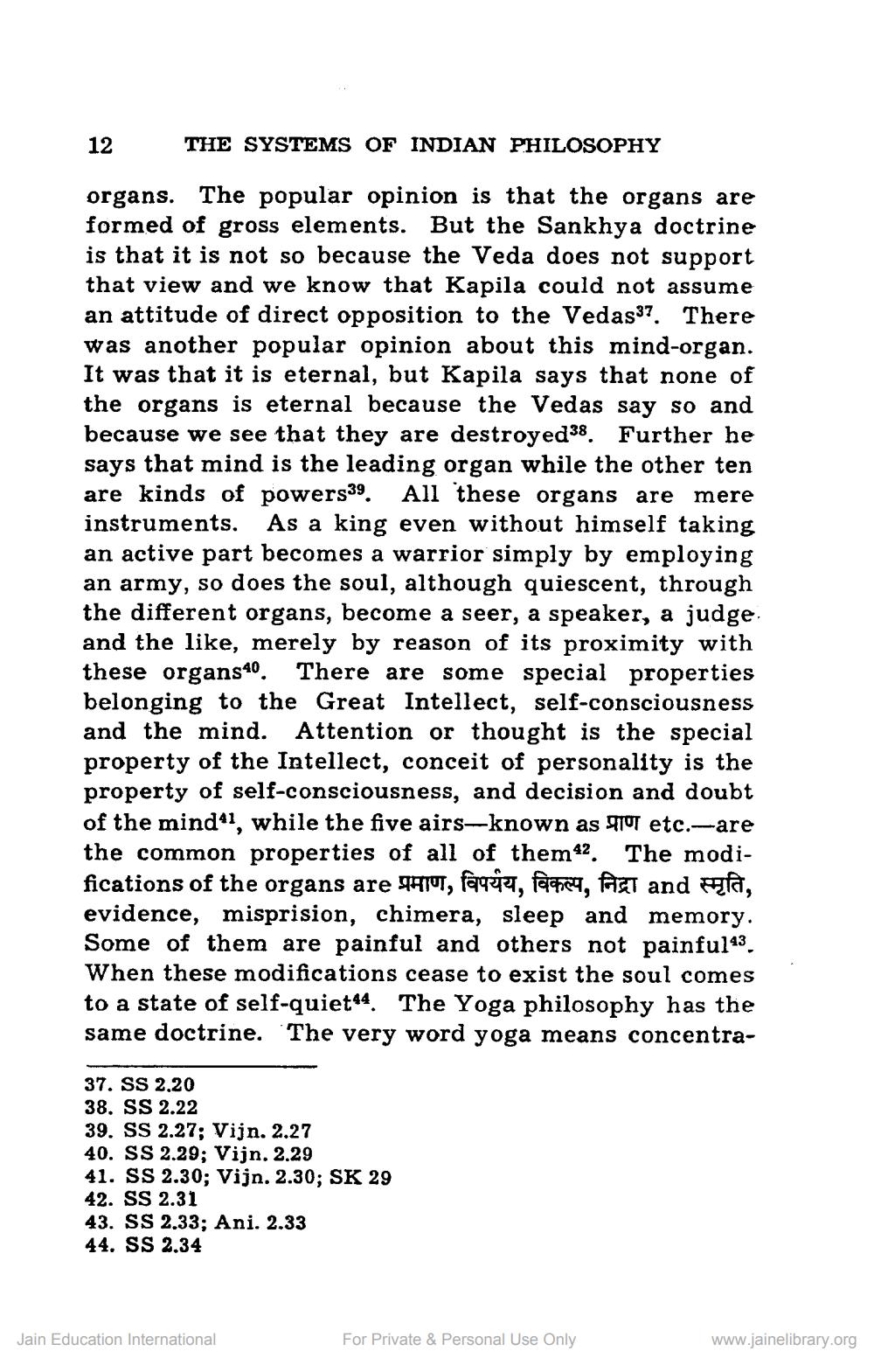________________
12
THE SYSTEMS OF INDIAN PHILOSOPHY
organs. The popular opinion is that the organs are formed of gross elements. But the Sankhya doctrine is that it is not so because the Veda does not support that view and we know that Kapila could not assume an attitude of direct opposition to the Vedas37. There was another popular opinion about this mind-organ. It was that it is eternal, but Kapila says that none of the organs is eternal because the Vedas say so and because we see that they are destroyed38. Further he says that mind is the leading organ while the other ten are kinds of powers39. All these organs are mere instruments. As a king even without himself taking an active part becomes a warrior simply by employing an army, so does the soul, although quiescent, through the different organs, become a seer, a speaker, a judge and the like, merely by reason of its proximity with these organs40. There are some special properties belonging to the Great Intellect, self-consciousness and the mind. Attention or thought is the special property of the Intellect, conceit of personality is the property of self-consciousness, and decision and doubt of the mindol, while the five airs-known as gut etc.-are the common properties of all of them42. The modifications of the organs are THIT, faquer, ferien, fast and Fla, evidence, misprision, chimera, sleep and memory. Some of them are painful and others not painful43. When these modifications cease to exist the soul comes to a state of self-quiet44. The Yoga philosophy has the same doctrine. The very word yoga means concentra
37. SS 2.20 38. SS 2.22 39. SS 2.27; Vijn. 2.27 40. SS 2.29; Vijn. 2.29 41. SS 2.30; Vijn. 2.30; SK 29 42. SS 2.31 43. SS 2.33; Ani. 2.33 44. SS 2.34
Jain Education International
For Private & Personal Use Only
www.jainelibrary.org




